Since its origins, the main genetical research activities carried out at the Department of Agriculture, Food, and Environment (formerly Institute of Genetics, founded by Prof. F. D’Amato in 1961) concerned experimental plant mutagenesis, cell polyploidy during differentiation and reproduction, and plant cell and tissue culture. In these fields, this Organisation has given a fundamental and original contribution to the increase of the knowledge.
During last years, the research group of Prof. Andrea Cavallini has developed studies on (i) genome structure and evolution, with special reference to the repetitive components of the genome as retrotransposons, that have been characterised at structural and functional levels by genomics and bioinformatics approaches; (ii) the genetic bases of abiotic stress tolerance in plants by studying structure, expression and variability of genes induced by cold, drought and trace metals in herbaceous, forest and marine species; in this respect, a transcriptome approach has been developed and procedures to make differential cDNA libraries established.
The group participates in the Doctorate School of the Department and can access facilities and advanced courses for young researchers specifically activated by this Ph.D. School.
Instrumental facilities available for research include instruments for computerized analysis of the data, an ultracentrifuge, thermal cyclers, a thermal cycler for quantitative Real Time PCR, agarose and acrylamide gel electrophoresis apparati (for nucleic acids and proteins), gel scanner, UV spectrophotometer. Moreover, a greenhouse and growth chambers are available.
The Plant Genetics and Genomics Lab maintains contacts and has engaged collaborations with important national and international research units, for example the Department of Botany, University of Vancouver, Canada (Prof. Loren Rieseberg), the Institute of Applied Genomics, Udine, Italy (Prof. Michele Morgante), the Arizona Genomics Institute, Tucson, USA (Prof. Rod Wing), the Rothamsted Research, Harpenden, UK (Dr. Keywan Hassani-Pak), the School of Life Sciences, University of Sussex, Brighton, UK (Dr. Alexandros Bousios). Moreover, the Lab carries on numerous collaborations in research projects and training of B.Sc., M.Sc., and Ph.D. students, in Italy and abroad (Ecuador).

Research Lines:
- Structural Genomics: The Repetitive Component of Plant Genomes
- Functional Genomics: Analysis of Gene Expression using RNAseq
Other pages:

